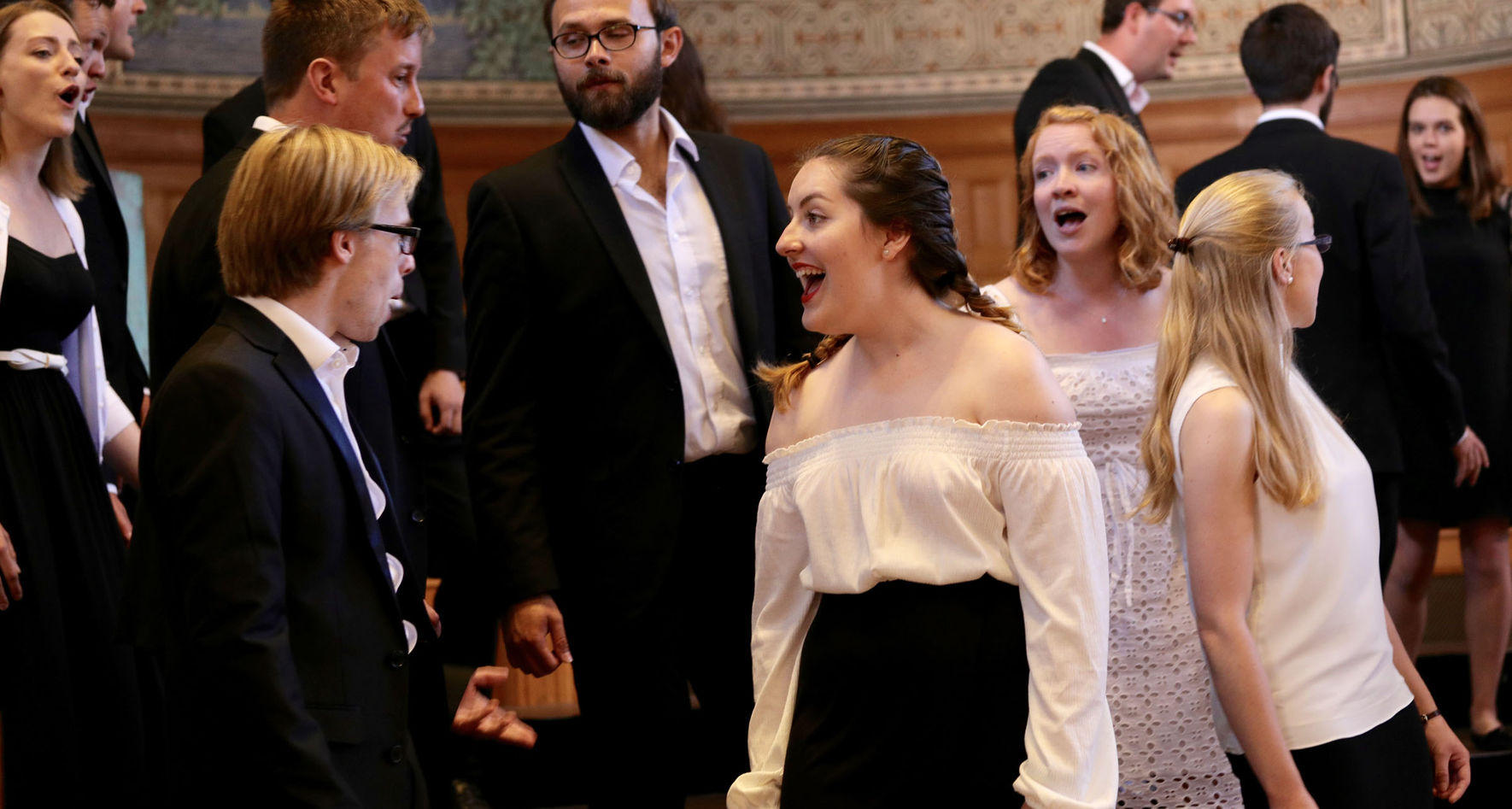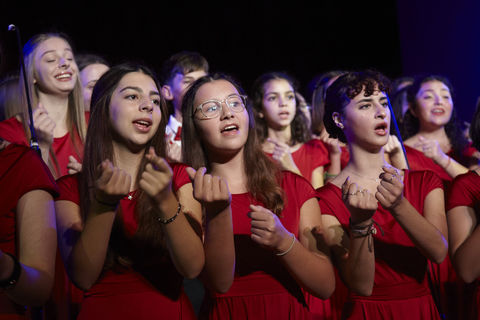
The way back on stage
Discussion with Dr. Achim Tieftrunk and Tristan Meister
In a talk with Dr. Achim Tieftrunk, Chairman of the Board of the Singschule Koblenz, and Tristan Meister, conductor and choirmaster, the focus was on the perspectives of the choral scene and the question of how the choral community can be strengthened and motivated.
Deserted rehearsal rooms, empty stages, silent concert halls - that was the picture of the last months in the German (and also international) choir scene. The restrictions and safety regulations of the Corona pandemic have hit amateur choirs particularly hard. Singers have had to do without their daily rehearsals, performances and, above all, their community for over a year now.
In this context, many choir directors are faced with the problem of keeping the choir community together and motivating it without a real togetherness. How can this succeed? What do choirs - the singers as well as the conductors - need in order to return to the rehearsal rooms with a good feeling? How will choir life develop in the coming months, when the end of the crisis is slowly approaching? These and other questions were the focus of the discussion with Dr. Achim Tieftrunk, Chairman of the Board of the Singschule Koblenz, and Tristan Meister, conductor and choirmaster.
Challenges and opportunities for the choral scene
For more than a year now, the current daily routine of most choirs has been characterized by distance regulations, technical hurdles, and attempts to continue choral work primarily online. "You can't call that 'rehearsing with the choir,' because the children and young people only hear one voice, which they then accompany on their own," says Dr. Achim Tieftrunk about weekly rehearsals via Zoom at the Singschule Koblenz. Tristan Meister also agrees: "There is no daily rehearsal routine at the moment."
Both agree that the most serious challenge of the current crisis is the loss of community. The occasional meetings and get-togethers on the sidelines of rehearsals are missing, and the "choir community" and the desire to sing together are difficult to maintain.
The opportunities of this difficult time arise above all for the individual singers. In addition to more intensive individual voice training and a better feeling for the handling of one's own voice, the choir members' personal responsibility was also encouraged and domestic preparation as well as preoccupation with the literature became more important.
Motivation for singers
But the members long for "rehearsals and singing in the community," according to Tieftrunk. Even if it won't be "like before" anytime soon, "after a year of Zoom rehearsals, every in-person rehearsal, whether 2m or 8m apart, is a blessing," Meister adds.
Decisive for the in-person rehearsals are the necessary trust of the choir members and suitable safety concepts. In addition to comprehensive hygiene measures and regular tests, this includes above all large venues in which the necessary distance can be maintained. Here Meister sees politics and choir associations in the duty to support the choir directors.
And the choir directors also have a great influence on the motivation of the individual members. It is important to convey confidence and optimism. The choir needs perspectives and concrete goals. "That's why events like the German Choir Championships with the concept of the open stage are a great way to motivate the choir to continue working after such a long lean period, despite hygiene regulations. Simply to have a concrete goal," explains Meister.
Perspectives for choirs
Both Meister and Tieftrunk are planning their first concerts for the fall and Advent seasons, respectively. Whereby the quintessence of choral work will be the main focus. "Choir events have the goal of bringing many people together: Choirs and people who listen to them with enthusiasm," says Tieftrunk.
And for this, choir directors should plan, set goals and give their choirs perspectives. Meister emphasizes the importance of this once again: "Of course, it hurts us all to have to cancel planned things again, but to be honest, it's better to have worked toward this goal for months and to have grown musically than to say, 'It's not going to happen anyway, we'll leave it alone’”. An optimistic attitude is important and crucial, he said.
"Take care of your choirs and keep in touch with your singers - even if you might just meet to talk instead of sing. Social contact with each other is perhaps just as important as rehearsing and singing together," Tieftrunk advises at the end of the talk.
In conclusion, even if we cannot return to normality in the near future, there are perspectives for the choral scene, smaller and larger, stages that are waiting for you and this should be used. Confidence is contagious and can inspire the community of your choir - use this!



